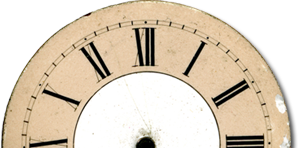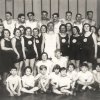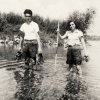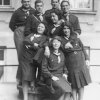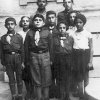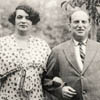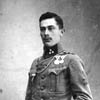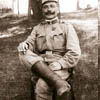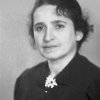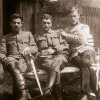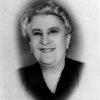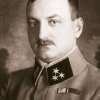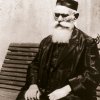Sports club Makkabi
Once Jewish children had become victims of anti-Semitic attacks in public sports associations, the Jewish community founded its own sports association, Makkabi. Under the watchful eyes of their president Julius Körner, approximately 30 children and youths went in for sports.
Betar
"I mainly had to work with the youth group. I looked after the little ones. I myself was not a grown-up either; I was about 16, 17. Each Sunday I brought together the 11- and 12-year olds, they were a particularly good group. We went hiking every Sunday, always together, and all of them came. The group was particularly good because all of them came and because they were good they all came. That was really an impression. And most of that group did eventually save themselves" (Zwi Gol, formerly Hermann Hahn).
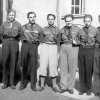
Association of Jewish Front Line Soldiers and Women's Group
In January 1935, former Jewish soldiers from the First World War founded the Association of Jewish Front Line Soldiers, chapter St. Pölten. This Association was the largest Jewish organisation above party lines in Austria. Its ambition was the resistance against anti-Semitism and the defence of Jewish honour. The contributions of Jewish soldiers during World War One were a particular focus point.
Read more: Association of Jewish Front Line Soldiers and Women's Group
Women's Charitable Association
The huge importance which is given to welfare and charity amongst the Jewry can be seen in the fact that the second officially registered Jewish association in St. Pölten was the Women’s Charitable Association. It was registered in the register of associations in 1902.
This Association had already existed before its formal foundation as it had owned a saving book at the Sparcassa St. Pölten with a credit of 80,36 crowns. Money was collected in the Synagogue where a donation box was put up. In addition, the ladies most certainly organised further events or meetings to seek donations. We do not, however, have any documentation about the Association’s activities nor about the number of members. After the foundation as an association, the Women’s Charitable Association was independent from the IKG.
In 1909, the Women’s Charitable Association was criticised by the director of the IKG, Siegfried Schwarz: it had neither submitted a treasurer’s report to the Board of Directors nor had it invited any members of the board to the general assembly. Karl Frank and Albert Leicht referred to the independence of the Association as defined in the articles of association. As money was, however, also collected within the Synagogue, the board decided to request report and accounts as well as an invitation.
Later IKG–documents show that the Women’s Charity Association paid into the fund for poor relief as did the IKG and the Chevra Kadisha. The donations were used to support needy community members as well as perambulating Jews. Point of contact for the poor and needy was once again Samuel Mandl’s shoe store on Kremsergasse where those moneys were awaiting distribution. Samuel Mandl’s son Franz continued this tradition – both were also active members of the IKG. Zwi Gol remembers: "All who passed through went to see him."
As regards the funding of the Torah shrine, the Women’s Charity Association proudly presented itself in German with Hebrew script: "donated by the Women’s Association St. Pölten".
Literary Association
In 1904, Rabi Dr. Adolf Schächter founded the Jewish Literary Association which organised convivial evenings with readings by renowned authors on a monthly basis. The aim was to cultivate Jewish history and literature by setting up readings and discussions as well as the establishment of a library. This Association also attracted attention outside of Jewish circles. "It would be desirable that the confessional majority for once had a strong enough wish for such a proposal in order to bring similar activities into being." is a quotation from an article in the »Beiträge für kulturelle Interessen« (Contributions on Cultural Interest from St. Pölten and surroundings) in March 1910. The Literary Association existed until 1934.
